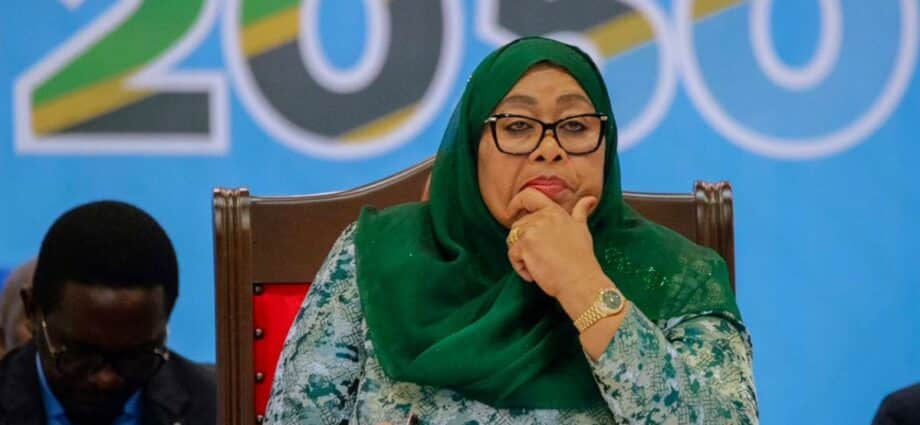Economic growth can be conceived either in terms of addition or multiplication. ‘Addition Growth’ is steady, consistent, incremental progress. ‘Multiplication Growth’ is exponential: it’s about creating synergies, leveraging resources, and unlocking hidden potential. While essential, incremental progress alone cannot propel a nation to the forefront of economic powerhouses. One needs creative ways to discharge economic chakras to accelerate growth. One of those chakras in Tanzania is the management of our administrative regions.
A few years ago, while reading a book about the rise of Xi Jinping, I began to appreciate the stark contrast between China’s and Tanzania’s approaches to regional leadership. Reviewing the Chinese model is essential to understanding where Tanzania falls short.
China’s administrative structure comprises 34 provinces, autonomous regions, and municipalities directly under the central government. A dual leadership system, combining the Communist Party and government roles, governs each province. Provincial leaders, including the Party secretary and governor, are appointed by the central government. The system works in such a way that local development is strategically aligned with the broader national agenda.
Chinese provinces are comparable to entire nations in size, population, and economic output. Guangdong, with over 113 million people and a GDP exceeding $1.6 trillion, rivals South Korea. Jiangsu, home to 80 million, has an economy on par with Canada. These comparisons underscore the immense scale and global economic influence of Chinese provinces.
Three things struck me when reading about the Chinese system: the substantial autonomy granted to provinces in economic management, the unique political leadership structure, and the emphasis on provincial or municipal performance as a primary criterion for national leadership promotion.
China’s provinces enjoy considerable autonomy in economic management, enabling them to leverage regional strengths and foster innovation. Coastal provinces like Guangdong excel in high-tech industries and trade, while inland provinces such as Sichuan focus on agriculture and heavy industry. This decentralized approach empowers provinces to establish Special Economic Zones (SEZs), attract foreign direct investment (FDI) through tailored incentives, and support businesses with subsidies and tax breaks.
Central oversight ensures alignment with national goals. As a result, provinces serve as economic workhorses of China, contributing greatly to the national GDP through competition among provinces and innovation.
Chinese provinces operate under a dual leadership system. The Communist Party Secretary, appointed by the central government, holds ultimate authority over a province, overseeing policy implementation and party discipline. The provincial governor, responsible for daily administration, ranks second.
Promotion to these roles is highly competitive, based on economic performance, social stability, and loyalty to the Party. Officials typically climb a hierarchical ladder, starting at lower levels and demonstrating competence before ascending to higher positions.
This meritocratic system, combined with rigorous evaluation, ensures a pipeline of highly competent leaders for the nation.
This system extends to national leadership. Delegates of the National Party Congress elect the Central Committee, which selects the Politburo. Notably, over 80 percent of Politburo members come from provincial leadership, ensuring competent and experienced individuals at the top, and preventing weak leadership. When you look at the people at the top of the Chinese system vis a vis the jokers you see in the West, you get a feeling that the West doesn’t stand a chance, does it?
In stark contrast, Tanzania’s regional governance model presents a different picture. Despite many regions surpassing the size and population of several African nations, their economic performance is significantly lower. RCs and DCs are often appointed based on unclear criteria, with many lacking the necessary qualifications. Decision-making powers are centralised, with economic policies and development initiatives largely controlled by the national government. Moreover, the lack of upward mobility from regional leadership positions to national roles raises concerns about the effectiveness of the system in identifying and promoting competent leaders.
Consider Dar es Salaam. Its population rivals the combined totals of Namibia, Botswana, and Gabon. Yet, despite its size and potential, its RCs have not transitioned into influential national leadership roles.
While contributing a significant 17 percent to Tanzania’s GDP, Dar’s overall economic performance pales in comparison to the combined GDP of the three nations mentioned, which totals over $52 billion against $14 billion for Dar. This contrast underscores our subpar performance at the regional level. Sadly, this is true of all the other regions too when considered as hypothetical African nations.
The Tanzanian central government’s one-size-fits-all model stifles growth and innovation. Without the autonomy to tailor strategies to local conditions, regions experience additional growth—incremental improvements that may not significantly impact overall development. This method often results in slower and less effective responses to regional challenges, leading to lacklustre economic progress.
We need decentralisation to give regions the autonomy to tailor policies to local needs. We must elevate the role of regional and district leadership, empowering them to drive economic growth and produce future national leaders. The Chinese approach demonstrates the potential for significant advancement. By adopting a similar approach, Tanzania can transform incremental progress into exponential economic development, leveraging local expertise for national progress.














